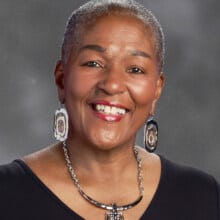I’m growing increasingly uncomfortable with the continued dialogue on the notion that “charter schools cause segregation,” an unintended consequence of the school choice movement.
As founder and director of the Sallie B. Howard School for the Arts and Education (SBHS) — one of the first and most successful charter schools in North Carolina for 22 years — I caution pundits on this line of thinking.
First and foremost, the goal of public schools is to provide a quality education to all students. Economic disparities and shifting demographics make this effort almost impossible, which is one reason charter schools became so popular. It empowered parents to choose programs that best suit their child’s needs rather than be relegated to an ineffective school that was mandated by their district.
Thanks to charter legislation, SBHS was afforded the flexibility to design a curriculum that addressed the unique challenges of students from low-income areas in Wilson County. We offer more than 1,000 African American, Hispanic, Asian, and Caucasian students in grades K-8 a performing arts-based curriculum, a travel abroad program, and a culturally diverse faculty. All SBHS students are provided free breakfast, lunch, and bus transportation.
Our academic record is strong. We’ve earned a school report card grade of “B” for the last two years, and nearly 100% of our eighth grader applicants are accepted into the early college program at Wilson Community College. Additionally, we are expanding our program to include the SBH High School of Biotechnology and the Fine Arts in 2020.
Parents and students flock to schools like ours for many reasons, but ultimately for the academic success. It’s also understandable that successful schools with a certain demographic will attract students reflecting that same racial makeup.
That isn’t segregation. It’s voluntary association — or, in other words, choice.
Let’s be clear: segregation was legally sanctioned separation based on race and often enforced with violence. It’s a divisive, highly charged term that carries a painful history in this country. Charter schools are about choice. Referring to the unexpected impact of school choice as “re-segregation” is polarizing and distracts from the main issue: student achievement.
This description says it best: “segregation is when someone blocks a door, not when you don’t like the open doors that are freely chosen.”
Rather than condemn charter schools for their freedom to find alternative methods to educating all students, critics and administrators alike should seek to collaborate with successful charters on determining effective ways to close the achievement gap.
It’s time to awaken from the “illusion of our separateness” and unite for a common cause.

JoAnne Woodard
Dr. JoAnne Woodard is the founder and executive director of Sallie B. Howard School for the Arts & Education, a free, K-8 public charter school established in 1997 in Wilson, North Carolina. She is the driving force behind the school’s unique arts-based curriculum, its culturally-diverse faculty and student body, and its study abroad program which sends students to places like China, India, Africa and Australia.
A native of Wilson, Dr. Woodard received her bachelor’s degree in psychology from Bennett College in 1969 and a masters and Ph.D. in social psychology from the University of Michigan (Ann Arbor) in 1975. She began her career in New York City at Children’s Television Workshop (producers of “Sesame Street”) and then went on to hold several teaching positions at Kean College and Rutgers University.
Serving briefly as program director at the City of Newark’s Youth Services division, Dr. Woodard moved to California for several years, returning to Wilson in 1986, where she landed a position as staff psychologist for NOVA Group Homes and the O’Berry Center in Goldsboro, N.C. She would go on to chair the psychology department at Barton College.
However, after spending years observing the poor educational condition of African-American children in the Wilson County school system, Woodard took action and in 1989 founded the Youth Enrichment Program (YEP), an eight-week summer camp based out of three neighboring churches. The first day of the camp drew over 420 children, due largely to the fact that YEP filled a huge void in small, rural Wilson which offered very little for youth to do in the summer. The program’s primary appeal was the creativity and spunk of its feisty, well-traveled instructor, Mrs. Sallie Baldwin Howard, who taught the campers African history, pride and a thirst for knowledge.
YEP prospered for eight summers until a charter law was passed in N.C. permitting non-profit organizations to establish public schools. Thus, Sallie B. Howard School for the Arts & Education was born. The school currently serves over 1000 students in grades K-8 and will expand to add the SBH High School of Biotechnology and the Fine Arts in 2020. Its mission continues to be to ensure that every child – privileged or underprivileged – gets the kind of education that will allow them to become more than they ever thought they would be.
Dr. Woodard is a licensed practicing psychologist in the state of North Carolina and an Advanced Trainer for the Nurtured Heart Approach to Discipline. She’s delivered numerous keynote speeches at various conferences and events, including the Wilson County chapter of the NAACP’s “Freedom Fund Banquet.”
The youngest of three siblings, Dr. Woodard has three children and four grandchildren.





